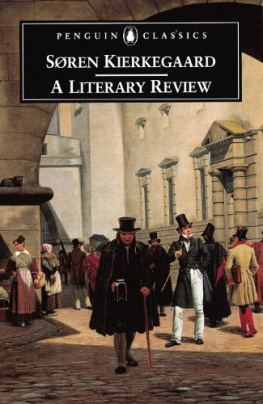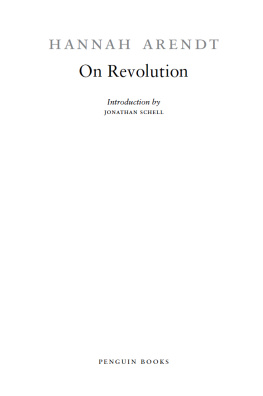
ROME AND THE MEDITERRANEAN
ADVISORY EDITOR : BETTY RADICE
T ITUS L IVIUS was born in 59 B . C . at Patavium (Padua) and later moved to Rome. He lived in an eventful age but little is known about his life, which seems to have been occupied exclusively in literary work. When he was aged about thirty he began to write the History of Rome, consisting of 142 books of which thirty-five survive. He continued working on it for over forty years until his death in A . D . 17.
H ENRY B ETTENSON was born in 1908 and educated at Bristol University and Oriel College, Oxford. After ordination and some years in parish work he went into teaching and taught Classics for twenty-five years at Charterhouse. He was afterwards rector of Purleigh in Essex, and died in 1979. His other publications are Documents of the Christian Church, The Early Christian Fathers, The Later Christian Fathers and a translation of Augustines City of God (Penguin Classics).
A LEXANDER H UGH M C D ONALD was born in New Zealand in 1908 and educated in New Zealand and at Cambridge University. A Fellow of the British Academy, he held numerous university posts, including that of Fellow of Clare College, Cambridge, and University Lecturer in History. Among his publications are Republican Rome (1966) and papers on Roman policy in the Hellenistic East. He was also editor of the Oxford Text of Livy (Books 3135; 1965). He died in 1979.
LIVY
ROME AND THE
MEDITERRANEAN
Books XXXI-XLV of
The History of Rome from its
Foundation

Translated by
HENRY BETTENSON
with an Introduction by
A . H . MCDONALD
PENGUIN BOOKS
PENGUIN BOOKS
Published by the Penguin Group
Penguin Books Ltd, 80 Strand, London WC2R 0RL, England
Penguin Putnam Inc., 375 Hudson Street, New York, New York 10014, USA
Penguin Books Australia Ltd, 250 Camberwell Road, Camberwell, Victoria 3124, Australia
Penguin Books Canada Ltd, 10 Alcorn Avenue, Toronto, Ontario, Canada M4V 3B2
Penguin Books India (P) Ltd, 11 Community Centre, Panchsheel Park, New Delhi 110 017, India
Penguin Books (NZ) Ltd, Cnr Rosedale and Airborne Roads, Albany, Auckland, New Zealand
Penguin Books (South Africa) (Pty) Ltd, 24 Sturdee Avenue, Rosebank 2196, South Africa
Penguin Books Ltd, Registered Offices: 80 Strand, London WC2R 0RL, England
www.penguin.com
This translation first published 1976
Copyright Henry Bettenson, 1976
Introduction copyright A. H. McDonald, 1976
All rights reserved
Except in the United States of America, this book is sold subject to the condition that it shall not, by way of trade or otherwise, be lent, re-sold, hired out, or otherwise circulated without the publishers prior consent in any form of binding or cover other than that in which it is published and without a similar condition including this condition being imposed on the subsequent purchaser
ISBN: 9781101491881
TABLE OF CONTENTS
PART I 201192 B . C .
T HE S ECOND M ACEDONIAN W AR
G AUL , L IGURIA AND S PAIN
PART II 191179 B . C .
T HE W AR WITH A NTIOCHUS
R OME AND I TALY ; S PAIN
PART III 178167 B . C .
T HE T HIRD M ACEDONIAN W AR
MAPS
INTRODUCTION
Livy would surely have approved of our presenting a fresh translation of Books
Virgil helps to clarify the conception in Anchises prophetic words to Aeneas. From Romulus, the son of Mars,
Under whose auspices Rome shall extend her rule
Over the earth and rise in spirit to Olympus,
he calls the roll of illustrious men who will lead her to greatness and he laments the discord that has wrought havoc within her empire. Augustus shall fulfil the mission of Romulus city. How? Praise Greek culture and practise the Roman art of government:
Others shall mould more softly, I foresee,
In bronze the breathing statue and from marble
Fashion the living face, plead better at law,
Measure the heavens and announce the rising stars.
Do you, Roman, be mindful (these are your arts)
To hold dominion and seal peace with custom:
Spare those who yield, the defiant utterly subdue.
(Aen. VI, 84753)
Thus to say: Impose the Pax Romana by right and responsibility of conquest; and Livy has described the events. In 189 B . C . Scipio Africanus defeated Antiochus the Great. The kings envoys, states Polybius, urged the Romans to use their victory magnanimously, since Fortune had granted them world power. (XXI, 16). Livy heightens the tone. You Romans, the envoys say, have always shown magnanimity towards those you have conquered. How much more generously ought you to act now, as masters of the world! Cease from strife with mortals and, like gods, tend and spare the human race. And Scipio replies, From things in the power of the gods we have what the gods grant us: our spirit remains the same in every fortune. (.) The theme is idealized; its expression at the time of writing reflected both appeal and warning.
In 1897 Britain celebrated Queen Victorias Diamond Jubilee. The occasion was one of praise and thanksgiving, like a service that should close with a hymn of dedication, and it was accompanied by popular tumult and shouting. Then Kipling, the poet of imperial law and order, wrote the Recessional, addressed to the God of our fathers,
Beneath whose awful hand we hold
Dominion over palm and pine,
and he warned the nation against sinful pride:
Lo, all our pomp of yesterday
Is one with Nineveh and Tyre!
Judge of the Nations, spare us yet,
Lest we forget.
A Roman historian of like mind would wish to complete his illustration of ancient virtue in the books we shall be reading before he reached the years of corruption and decline.
Born at Patavium (Padua) in 59 (or 64) B . C . Livy was able to judge the condition of Roman affairs by the time Octavian (later called Augustus) had won the victory of Actium (31 B . C .). In affluent Cisalpine Gaul, which was now closely linked with Rome, he received a liberal education and practised rhetoric so as to prepare for a literary career. He wrote on philosophy, with a bent towards Stoicism, but treated history as yet only by discussion in dialogues, perhaps following the model of Ciceros De Republica. It was not official experience or direct political interest that led Livy into full-scale history. He was a conventional thinker, set firmly in the sober Italian tradition, which the Italians held to be more faithful to Rome than the sophistication of the Late Republic.
Cicero had expounded the case for civic concord in a united Roman Italy and the leadership of men like Pompey the Great. Against Antony and Cleopatra Octavian called on all Italy and the west to defend the position of Rome, and after Actium he took control of the Greek east. In 29 B . C . he celebrated a triumph and closed the temple of Janus to proclaim peace throughout the Roman empire. As another Romulus (but not a king) he aimed at refounding Rome under the old auspices. It was in this situation that, moved by the feelings of relief, hope and doubt which arise in the aftermath of civil war, Livy undertook to write a history of Rome from her foundation. It would enjoy the goodwill of Roman Italy and support Augustus policy. Some ten years later he faced the wide expanse of Mediterranean conquest, most significantly visible in the Greek world. Polybius work would serve and instruct him; his own style would carry a long and complex narrative.
Next page











